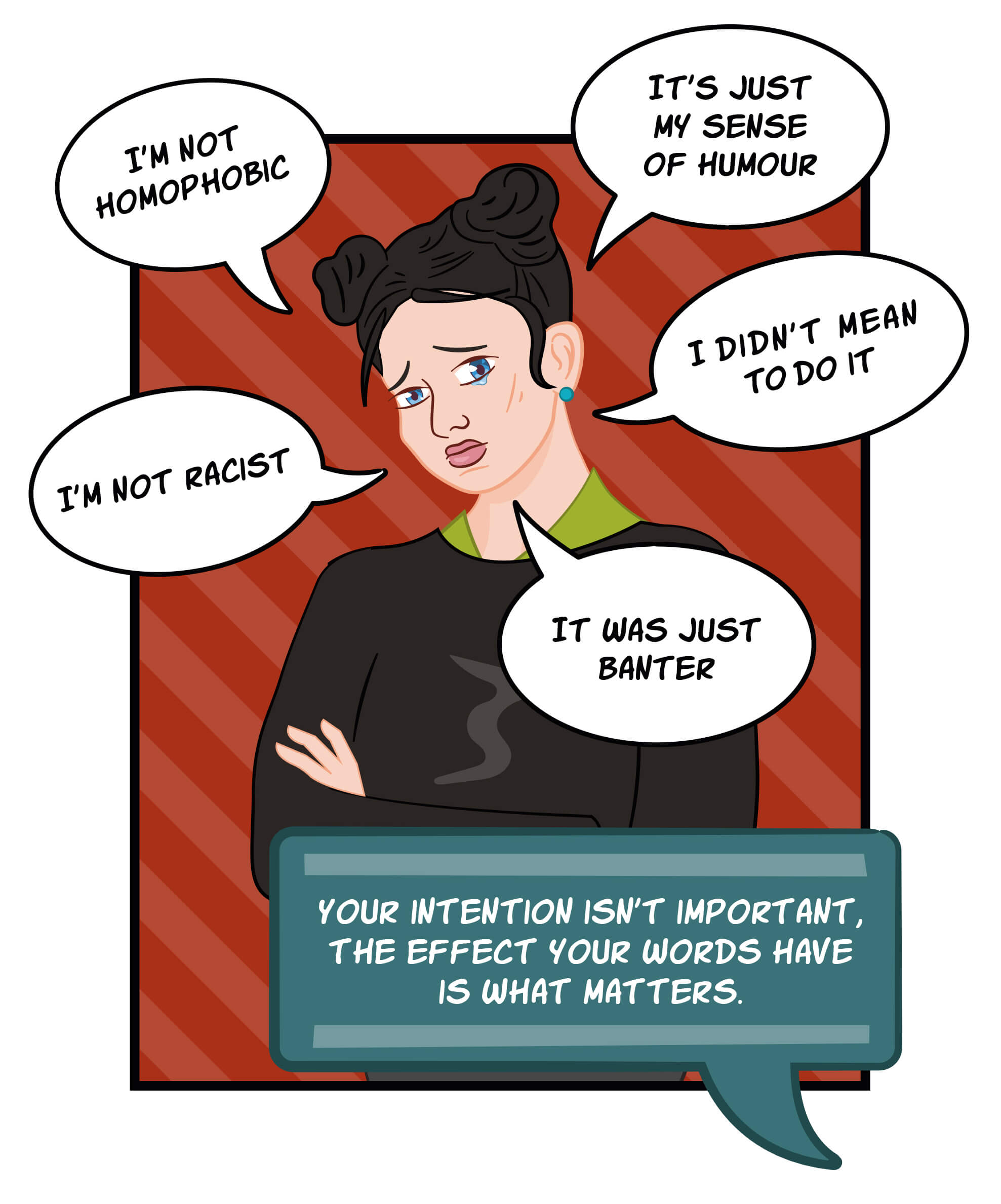The term banter implies a lively and fun exchange of good-humoured teasing remarks between folk. But it is also a term which is frequently misused, often bandied about in situations where it does not really apply, and increasingly used as a get-out-of-jail-free card for somebody’s bad behaviour.
The implication behind its misuse is generally – ‘Oh lighten-up I’m a fun person & just kidding around, don’t be such a killjoy’. It’s used to say something unpleasant and offensive and then distance the person from the effects of their remarks. But offensive behaviour is not bants, it’s not LOLs; it’s poor behaviour and it’s often pretty grim. Worse still, sometimes the term is used to say that the person who points out the inappropriateness of behaviour is in the wrong – if you find this offensive there’s something wrong with you, because this is just banter.

It’s fair to say that sometimes the person who excuses their behaviour as banter did not actually intend offense, or realise that it might cause offence (there’s a lot of casual sexism, racism, homophobia etc. out there sadly), but that does not mean that what they say is inoffensive. It doesn’t mean that they should not know better. And it doesn’t mean that they avoid the consequences for their behaviour.
 Myth of private messaging
Myth of private messaging
 "Just a bit of a laugh"
"Just a bit of a laugh"
In the online world, you can use your voice – a voice that is more at liberty to say how you truly feel. For instance, I love cats! I’m not going to shout that out of my window right now (it’ll terrify my elderly next-door-neighbour) but, online, I can tell you – I LOVE cats!
Your online voice is difficult to interpret. You can make a joke about something but how can people be sure that it’s a joke? I was being sarcastic before, by the way. Dogs are way better.
Banter v BullyingThe content of this site has been produced by students of the University of Winchester.
Meet the team{{ profile1.jobTitle }}
{{ profile2.jobTitle }}